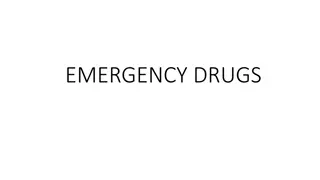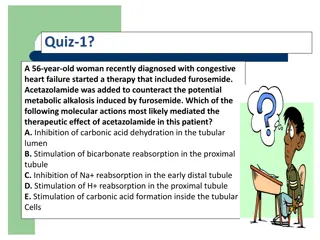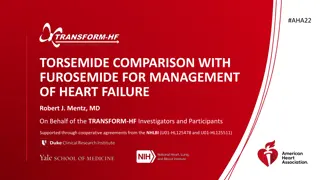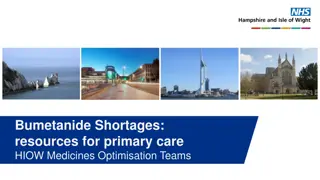Emergency Drugs and Their Mechanisms of Action
Learn about essential emergency drugs such as Adrenaline, Adenosine, Atropine, Furosemide, Calcium Gluconate, and Lidocaine. Understand their mechanisms of action, dosages, indications, and onset times to effectively manage cardiac arrest, anaphylaxis, arrhythmias, and other critical conditions.
3 views • 17 slides
Pharmacology Quizzes on Diuretics and Their Clinical Applications
This content presents a series of quizzes involving diuretics and their role in clinical scenarios related to heart failure, glaucoma, renal hemodynamics, and intracranial pressure. Questions cover various diuretic agents such as furosemide, acetazolamide, mannitol, and hydrochlorothiazide, focusing
0 views • 10 slides
Torsemide vs. Furosemide in Heart Failure Management Study Overview
This study compares the long-term effects of torsemide versus furosemide in the management of heart failure. Torsemide may offer advantages such as more consistent oral bioavailability and longer action duration. The study aims to determine if torsemide reduces mortality by 20% compared to furosemid
0 views • 15 slides
Bumetanide Shortages: Resources and Guidance for Primary Care Teams
Shortages of bumetanide have prompted the need for proactive management in primary care settings. It is vital for patients not to go without their diuretic medication, and healthcare providers are advised to switch patients to alternatives like furosemide. Monitoring patient symptoms, fluid balance,
0 views • 12 slides



